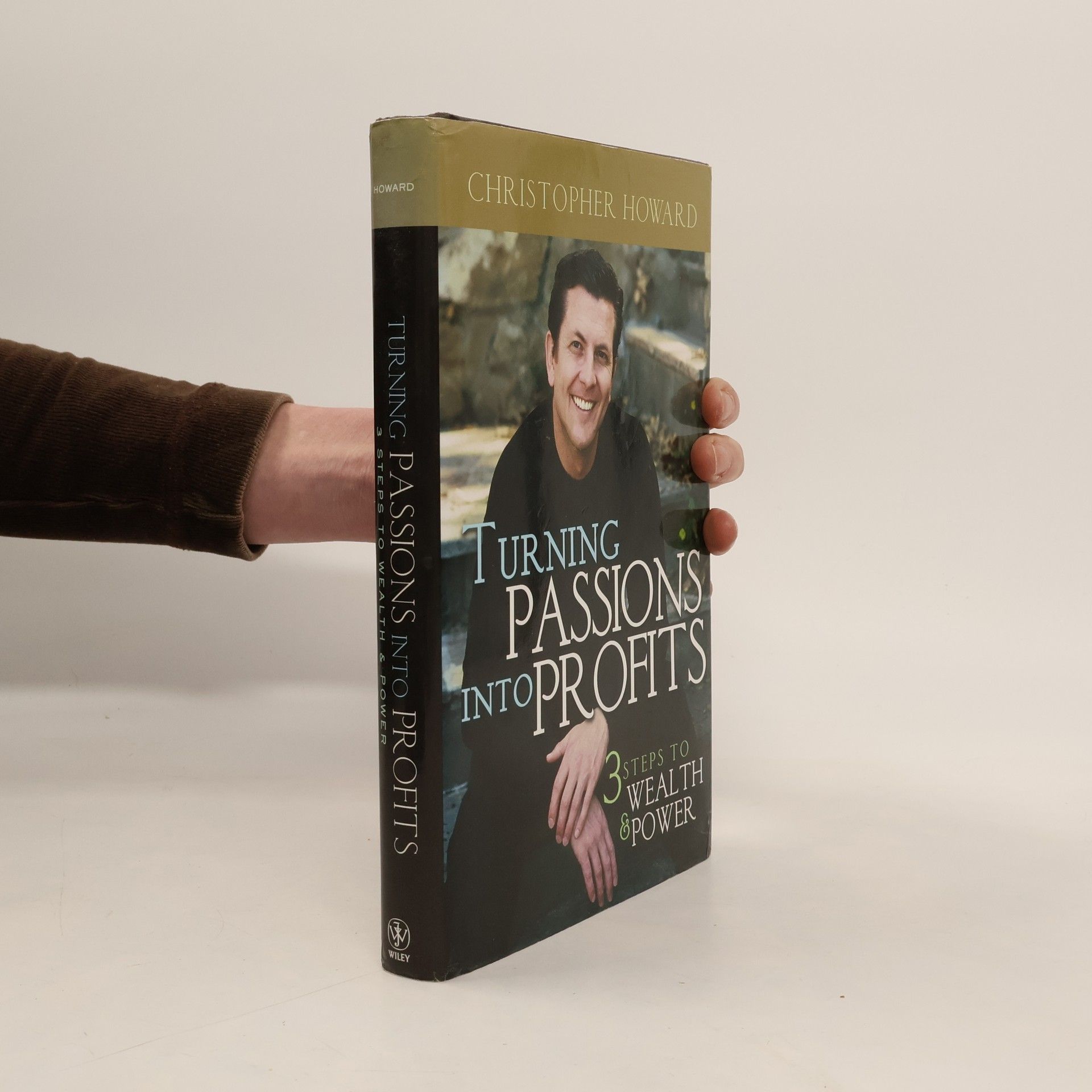And the Band Played On: The enthralling account of what happened after the Titanic sank
- 290pagine
- 11 ore di lettura
AND THE BAND PLAYED ON brings to life the trauma of the Titanic through the true story of one family.






AND THE BAND PLAYED ON brings to life the trauma of the Titanic through the true story of one family.
Turning Passions Into Profits provides specific techniques for rapidly closing the gap between where you are today and where you'd like to be tomorrow. In this book, Christopher Howard teaches powerful, innovative tools for modeling and replicating the ultimate success of some of the world's greatest leaders and billionaires. With the ability to select and incorporate some of the traits, strategies, thought patterns, and behaviors of those already achieving results, individuals can plot a course and arrive at a chosen destination quicker than they ever thought possible. It provides concrete tools and strategies to fully understand the governing principles outstanding achievers use to realize their vision. In addition, Turning Passions Into Profits supplies exercises to apply these communication and leadership tools to master these skills-ultimately gaining career, financial, and personal success.
The Wyrm is upon Us Werewolf legends reach back to the Golden Age of Gaia. Garou still gather around the campfire today, even as tribe fights tribe and the Wyrm slowly devours the world. Now you can relive some of the greatest Garou legends with Werewolf Chronicles Volume 2, a compilation of the first Werewolf stories ever told.This is a Good Day to Die Werewolf Chronicles Volume 2 combines the original Werewolf manifestos against the Wyrm and the corruption of humanity, Ways of the Wolf and Monkeywrench! Pentex. Now they're under one all-new cover. These classics have been out of print for years and can't be found anywhere else. Werewolf Chronicles Volume 2 Features: Two classic Werewolf sourcebooks: Ways of the Wolf and Monkeywrench! Pentex, two of the books that established the world of Werewolf; Information on how to play primal lupus Garou, the truly feral among werewolves; Details on how to strike back at Pentex, the modern embodiment of the Wyrm. Take the fight to the enemy's door.
The story follows young Will as he embarks on a challenging adventure to confront the discouraging voice known as The Can't Monster. This internal struggle symbolizes the obstacles that prevent individuals from reaching their full potential. Throughout his journey, Will learns valuable lessons about perseverance and self-discovery, ultimately questioning whether he can overcome the doubts that hold him back.
Focusing on the social safety net in the U.S., the book provides a comprehensive analysis of poverty through the perspectives of various stakeholders, including citizens, organizations, and officials. It highlights significant gaps in support, particularly affecting marginalized communities such as Blacks and Hispanics, as well as part-time workers. By examining both the investigation of the poor and the attitudes of the non-poor, it offers a nuanced understanding of America's approach to poverty and social welfare.
A quiet voice lives in our heads, discouraging us from attempting difficult things, tempting us to quit, and preventing us from realizing our potential. This is the voice of The Can't Monster, and young Will is about to confront it head-on. His adventure won't be easy, and he's sure to learn a lot about himself along the way. Does Will have what it takes to overcome The Can't Monster?
The first comprehensive map of the social safety net, public and private, in the United States.Societies are often judged by how they treat their most vulnerable the poor and near poor. In the United States, this responsibility belongs not only to governments, but also to charities, businesses, individuals, and family members. Their combined efforts generate a social safety net. In Who Cares , Christopher Howard offers the first comprehensive map of the US social safety net. He chronicles how different parts of American society talk about poverty-related needs. And he shows what Americans do to provide basic levels of income, food, housing, medical care, and daily care. Although the US social safety net is extensive, major gaps remain, particularly impacting Blacks, Hispanics, and individuals who are not employed full-time. Drawing heavily upon evidence from the years right before the Covid-19 pandemic, Howard demonstrates that these problems persist even when the economy seems healthy. Who Cares concludes with an initial assessment of how the social safety net performedduring the pandemic.
In einer Zukunft, in der fast alle Pflanzen und Tiere ausgestorben sind, arbeitet der junge Banyan als Tree Builder und fängt die Schönheit der längst ausgestorbenen Bäume in kunstvollen Eisennachbildungen ein. Bei einem seiner Aufträge begegnet er einer Frau, auf deren Haut der Weg zu den letzten Bäumen auf Erden verzeichnet ist. Er erliegt der Vorstellung von diesem Paradies und macht sich gemeinsam mit der Fremden auf den Weg dorthin. Doch die zwei sind nicht die Einzigen, die die Bäume suchen, und so führt sie ihre Reise immer wieder an den Rand des Todes …
Das Brüllen des Löwen Haus Hawkwood hat einen der ihren Imperator werden sehen, nur um von Alexius in dessen Bemühen, die Gunst aller Fürstenhäuser zu gewinnen, an den Rand gedrängt zu werden. Macht nichts! Die Hawkwoods sind im Angesicht der Wogen der Zeit und der Unruhen stets stoisch und unnachgiebig geblieben. Nachdem sie jahrhundertelang den Überfällen durch die Vuldrok widerstanden haben, sind nun sie an der Reihe, in die Welten der Barbaren zu expandieren und ihren verlorenen Ruhm zurückzuerobern. Im Buch enthalten: Der Adel, eine Einführung in das Thema der Adelstitel, Erbschaften und Besitztümer aller bedeutenden und unbedeutenden Fürstenhäuser der Inneren Welten. Die Reihe Imperiale Dossiers untersucht eingehend die Hauptfraktionen des Universums von Fading Suns. Jedes Buch dient als Nachschlagewerk für eine einzelne Fraktion und wurde vom Imperium für seine Diplomaten, Bürokraten, Soldaten, Sternenmatrosen, Questritter und deren Vasallen in Auftrag gegeben, zusammen mit Kommentaren vom Auge des Imperators. Jedes Buch enthält außerdem einen „Tatsachenbericht“ zu einem Thema, das eng mit der im Dossier behandelten Fraktion zusammenhängt, sowie einen Regelabschnitt, der neue Berufungen, Vorzüge, Ausrüstung und sogar Alien-Kreaturen beinhaltet.